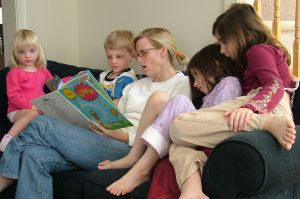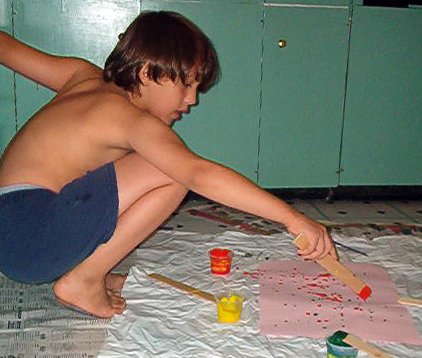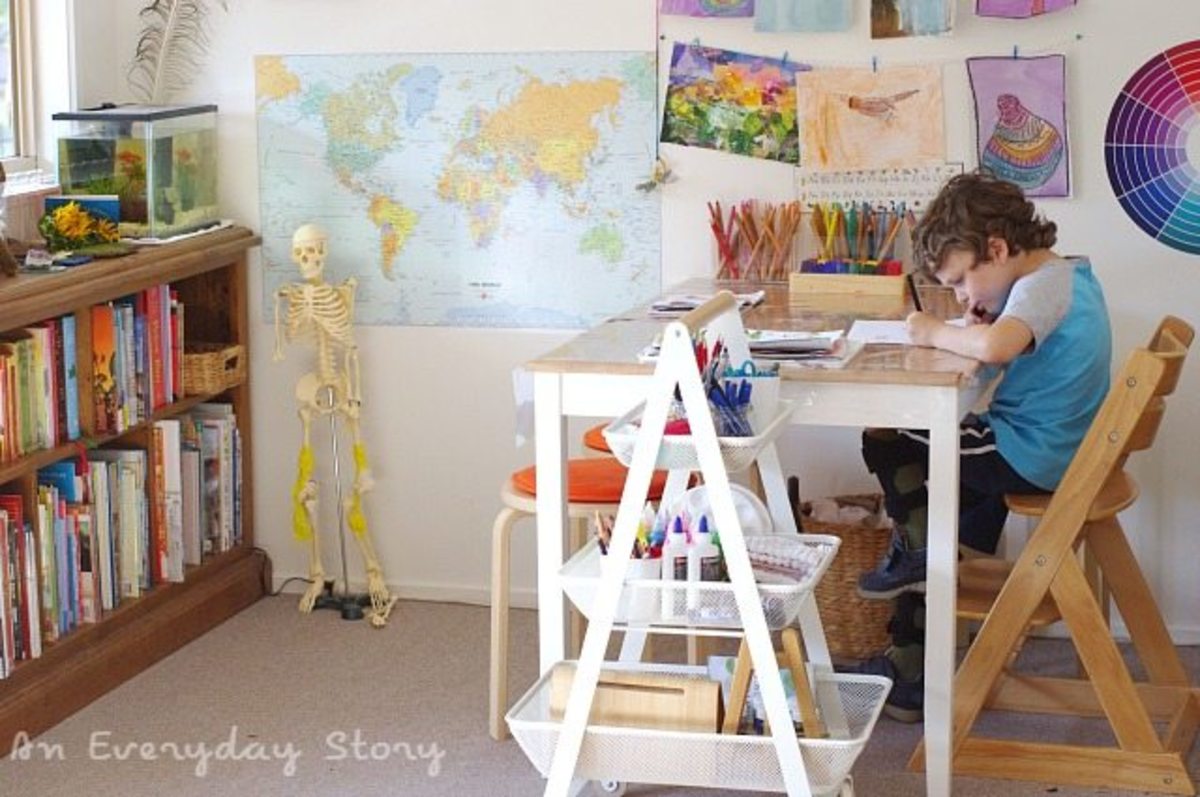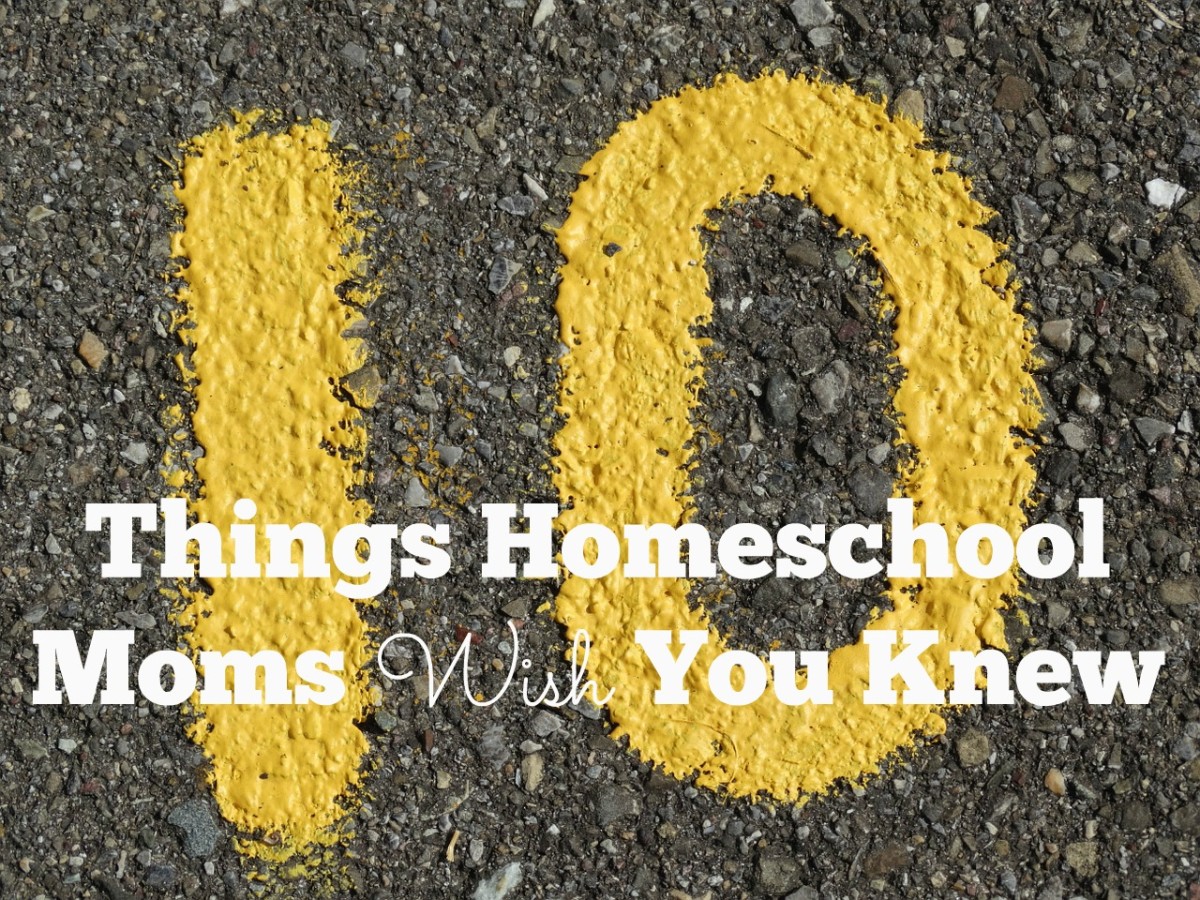How to Start Homeschooling Your Kids

Choosing to Homeschool
Homeschooling is not actually new. Originally, children were all educated at home. When schools were first established, they were for a select, privileged few. Only the wealthiest families could send their sons to school. Eventually, some form of formal education was extended to the daughters of wealthy families. It wasn't until less than two centuries ago that schools became widespread and available to the masses, and only in the last century or so (give or take a couple of decades) that education was seen as the responsibility of the government, rather than of the parents.
What we're discovering, though, is that formal, institutionalized, standardized education is not a one-size-fits-all proposition. While some kids do thrive in school, others barely scrape by, and still others languish in the environment. Because of this, more parents are revisiting the ancient concept of home education, and finding great satisfaction and success.
Starting to homeschool can be a bit of a daunting endeavor-- compulsory education laws have made schooling so ingrained in our culture that it can be difficult to figure out how to take another route in life. If you're looking to homeschool your kids, whether taking them out of school or starting off as homeschoolers from the beginning, here is a brief guide to help you get started.
Remember-- It's Your Choice; Your Right
One of the first things you need to know when it comes to homeschooling is that you have a right to choose it. There is still a lot of misunderstanding surrounding homeschooling, which will come to light when people find out you are considering it.
Some family and friends might be very negative. Note that the most negative people usually have the absolute least experience with homeschooling. People are just uncomfortable with things they don't understand. Don't let them discourage you from making a choice for your family-- you have to do what you think is right.
Another misconception is that parents need permission from the school to take kids out to homeschool. Sometimes faculty and staff at the school will even tell you this. This is just not true. As long as you follow your local homeschool laws, you have the right to homeschool. Educators generally discourage homeschooling; they feel it undermines their profession, plus it also takes funding away from the school when students leave. Needless to say, their opinion is biased and not always in the best interest of your child, but their own self-interests.
Is Homeschooling Worth Consideration? You Be The Judge
Read All About It
Before you do anything when it comes to homeschooling, you should begin educating yourself on the topic. There are a lot of different ways to approach education, and there are many different ways to learn. Children have different learning styles-- some might require more hands-on activities, while others may do better researching and writing. There are a lot of different schools of thought when it comes to methods, and a wide variety of materials and learning tools available.
The best way to familiarize yourself with all your options is to just spend the first few weeks reading about them. You don't have to make any choices now.
Learn the Local Laws
In the U.S., each state determines its own homeschooling laws. In other places, laws may be divided by province or be for the entire country. Wherever you live, the first step in homeschooling should be to learn the laws that apply to you.
Laws do vary from place to place-- in some places, homeschooling is considered entirely the right of the parent and you are not required to report anything to anyone. They set no rules or guidelines, leaving it entirely to your own discretion. If you're lucky enough to live in one of these areas, you will have a lot of choice.
Some areas have moderate regulations, and some can be very stringent. Homeschool laws may require a slew of paperwork every year. Laws may dictate that you homeschool for a certain amount of days per year, there may be required subject areas, or some places require you to take your child for annual tests or evaluations of some sort. If you don't want to run into any legal complications, you must follow the laws. If you live in places such as these, try not to let the laws discourage you-- when you first read them, they can look intimidating. After you learn to decipher them, you'll find they're not as scary as you thought in application (thought, admittedly, sometimes they can be a pain to deal with and get more in your way then help you).

Recommended Homeschooling Books:

Ease Into Homeschooling
One of the biggest mistakes new homeschoolers make is trying to jump in full-force like a miniature school. They set up a school room, they purchase expensive pre-packaged curricula, they make a color-coded schedule to hang on the wall-- and soon after, find themselves discouraged, ready to throw the books and schedule in a fireplace, and suffering from burnout.
Homeschooling requires a transition-- both you and your child are going to need some time to adapt. Don't feel you have to have it all together on the first day. Your child is not going to suffer or "fall behind" from a transitional period; in fact, allowing the transition to go slowly will benefit the both of you.
For a few weeks, just get used to being home together and doing things together. Pick some educational activities, such as reading, writing stories, math puzzles, science projects or social studies. Don't make it all book work-- take field trips, watch educational DVDs, surf educational websites, work on art projects like dioramas and posters. Just do things together daily, and see what kind of rhythm into which you naturally fall.
If you wake up bright and chipper, you might find early morning is a good time to plan work. If you wake up sluggish and slow, you might prefer to ease into the day more slowly and start work later. Perhaps your child wakes up with energy to burn-- some exercise, or hands-on activities to use up some of that excess energy might be the best way to go. You might find you and your child prefer unit studies, unschooling, or adhering to traditional curricula. You won't know unless you give yourself a chance to see where your natural inclinations lead. You can't find that out if you try to impose some pre-concieved notions about what learning is 'supposed to be'.
After a few months, with some trial and error, you'll find yourself falling into routines and patterns naturally. Adopt those that work for you, and try to alter those you feel aren't useful. Just don't try to do it all at once-- remember, it's a lifestyle, not a race!
Recommended Homeschooling Books:

Socialization is no problem.

What to Do About Socialization
One of your concerns (or a concern that might be voiced by friends and family) is probably socialization. You may wonder where your child will go to socialize if not in school. The answer is easy-- everywhere else.
There is simply no reason to think homeschooling means you and your child are confined to the home. You can put your child in library programs, 4H groups or community center classes. You can put your child in extracurricular activities such as neighborhood sports, karate, dance, drama, art and music. You can sign your child up to be a scout, to go to zoo or museum programs, or sign him up for volunteer activities.
A lot of homeschoolers like to ban together to form homeschool co-operatives (co-ops) or support groups. They may meet for play dates, or to do educational activities together, or they may have a full-blown program with classes, field trips, a prom and graduation ceremony.
Look into your area to see what's available. You may find there is more to do than you even thought of-- and without school, your child will have time for a lot. But even if you only bring your child to the park every afternoon, or to play at a friend's house a couple of times per week, he's probably getting all the socialization he needs.

Educational Opportunities are Everywhere
Did you know a child can learn to count money just by pretending to run a store, or can learn measurements by helping you bake muffins and cookies? Did you know that helping your child plant a small pizza garden in the yard can teach him about the life cycle of a plant? Did you know that working on your family tree can be a springboard to teaching kids about different periods of history or about different cultures? Or that running a lemonade stand can be in introduction to basic economics?
Learning opportunities are everywhere-- Legos can teach kids basic engineering concepts; cooking can teach them about chemical reactions; playing a game on your billiards table can help them understand geometry. Everything is a learning opportunity-- there are enrichment experiences everywhere. You just have to look for them. Providing your child with a stimulating environment and a lot of activities is all part of the homeschooling experience that teaches kids the valuable lesson that life is learning, and learning is a part of life.








